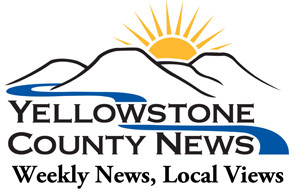When I was in grade school, we were taught how to think. When we said the Pledge of Allegiance every morning, we all said, “…one Nation under God,…” When I learned the Lord’s Prayer, we would say “…forgive us our sins as we forgive those who have sinned against us…” We learned that the United States of America was a Judeo-Christian Republic. Carbon dioxide was just the result of photosynthesis. Climate simply meant we lived in a semiarid climate.
My first recollection of “other” climate was from a “Weekly Reader” telling us children that we were in danger of going back into an ice age. The only necessity was an average temperature drop of just two degrees. We were heading into a period of global cooling. Scientists were working hard on ways to keep Earth from getting any colder. Unknown to me, this was my first introduction to word rebranding.
After the U.S. Constitution was written, James Madison stated, “What a metamorphosis would be produced in the code of law if all its ancient phraseology were to be taken in its modern sense.” The Constitution was now the new law of the land. This new law was to govern based on what it said, not on what today’s word rebranders interpret based on their evolving “word rebranding.” Madison’s quote is words of instruction for all future generations.
When I got my first driver’s license, the Montana speed limit was “safe and prudent.” The speed limit laws have changed many times since that time. In the event one gets stopped on the highways for speeding, one can’t claim precedent because the speed limit was once “safe and prudent.” The law has been changed. However, one could research and use the intent governing the making of the new speed law, if applicable. James Wilson’s (one of our first Supreme Court justices) advice to future generations, “The first and governing maxim in the interpretation of a statute is to discover the meaning of those who made it.”
Words matter. The subtlety of just one well-placed word repeated perpetually can have a major impact on our thought process. If the perpetuator of such a word happens to be an admired individual, the far-reaching effects are even greater. Teachers, politicians, and news organizations are among the entities of greatest influence. For this reason, any time one hears word rebranding, correction from “we the people” must come hard and fast.
When we hear our nation being called a democracy rather than a republic, get vocal about the correct use of the word democracy and republic. This is especially important when it comes to our U.S. Constitution. Decisions based on our Constitution must be based on the instructions given by James Madison.
A prime example of this is contained in the Federalist 85. Alexander Hamilton explains the final draft of Article V: “By the fifth article of the plan [the Constitution], the Congress will be obliged ‘on the application of the legislatures of two-thirds of the States, to call a convention for proposing amendments’ … We may safely rely on the disposition of the State legislatures to erect barriers against the encroachments of the national authority.”
The intent of Article V is clearly stated here. “We may safely rely on the disposition of the State legislatures to erect barriers against the encroachments of the national authority.” There is no doubt about the intent of Article V.
As we all know, the Convention of States (COS) currently has an Article V amendment before legislators in Helena. In parting, I ask YCN readers to call your state legislator and read them Hamilton’s Federalist 85 statement. Ask them if we can safely rely on the disposition of the state legislators to erect barriers against the national authority.
TJ Smith contributes a weekly column to the Yellowstone County News from the perspective of conservatives in the area.

